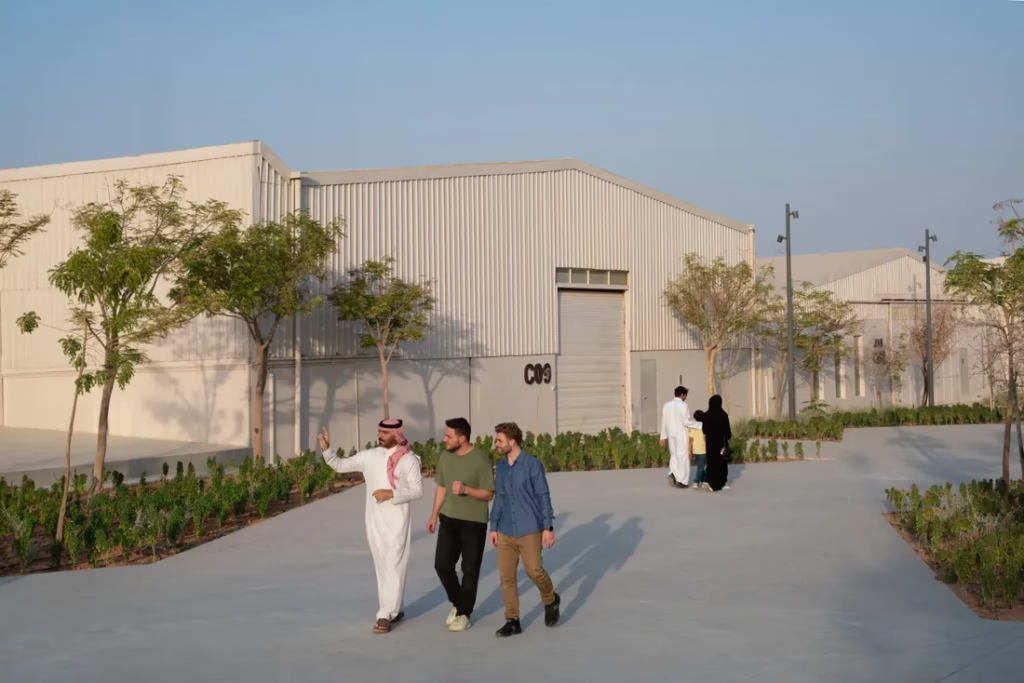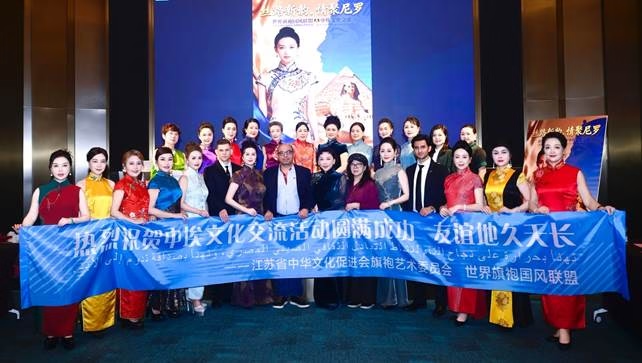From Craft to Global Scale: The Power Behind Brazil’s Footwear Success Quality shoes, built for the world.
Brazil stands tall as the world’s fourth-largest footwear producer, a testament to the industry’s rich heritage, innovation, and resilience.
In this exclusive interview with Leticia Sperb Masselli, Relationship and Business Manager at At Abicalcados, we explore how Brazil continues to thrive in global markets through cutting-edge design, sustainability, and strategic partnerships. From the growing international presence of Brazilian brands to the unique success of BFSHOW—the largest footwear trade show in Latin America—this conversation reveals the forces driving Brazil’s footwear excellence. With insight from Abicalçados, the industry’s official representative, we uncover how Brazil is stepping confidently into the future of global footwear.
Interviewed by Fatiha Idrissi
BFSHOW is a real success story because it was born from a demand within the market itself
United Arab Emirates as one of its target markets, there’s a focused effort to meet the specific needs of the region and keep building Brazil’s presence there.

1 – Brazil is currently the 4th largest footwear producer globally. What do you attribute this continued success to?
With a strong domestic market, the Brazilian footwear industry has grown and evolved based on qualities that have been there since the beginning. It’s a sector with over a hundred years of history and is known for its solid production capacity and flexibility—whether we’re talking about different styles or volumes.
Making women’s, men’s, kids’, sports, and safety shoes—whether under its own brands or as private label—is something Brazil really knows how to do. And it does it with a difference: design, quality, comfort, and sustainability are part of the package.
Another thing that’s played a big role in this success is how the industry works with international markets. The exchange between Brazilian factories and global buyers has helped these companies keep evolving, improving their processes and tech along the way.
2 – With over 929 million pairs produced in 2024, how does the industry manage such a large-scale operation across different regions?
The Brazilian footwear industry is present in around 600 cities, spread across almost every region of the country. To handle an operation on this scale, companies have built efficient logistics strategies, trained local workers, and helped drive development in the areas where they operate.
That experience—overcoming geographic and infrastructure challenges right here at home—has really prepared the industry to work efficiently and meet deadlines, even when exporting to more than 160 countries around the world.
3 – What trends or technologies are shaping the future of footwear production in Brazil?
Brazilian footwear companies follow global fashion trends, but what really sets them apart is how they bring local culture into their designs. The industry has been investing heavily in technology—both to make production more efficient and automated, and to add more value to the products, with things like comfort, health, and performance.
Sustainability, too, is no longer just a trend. It’s become a strategic direction, with more solid and innovative practices taking root in Brazilian factories. One clear example of this progress is Sustainable Origin, a program created by Abicalçados in partnership with Brazilian Association of Companies of Components for Leather, Footwear and Manufactured Goods (Assintecal) to certify footwear manufacturers and their suppliers.
4 – BFSHOW is in its fourth edition and continues to grow. What sets it apart from other trade fairs?
BFSHOW is a real success story because it was born from a demand within the market itself—for a trade show created by the industry, for the industry and retail. Unlike other events, all key decisions are made by a committee of companies from different footwear hubs, coordinated by Abicalçados, the official representative of the sector in Brazil.
This collaborative management model brings real representation to the table, stays focused on what the industry actually needs, and makes BFSHOW the biggest footwear trade show in Latin America—a global showcase of the biggest footwear production in the West.

5 – How crucial is the support from Abicalcados and state governments in sustaining and expanding the footwear sector?
Support from Abicalçados and the government plays a key role in keeping the Brazilian footwear industry strong and growing. As the official voice of the industry, the organization works on behalf of the sector—representing it, defending its interests, driving development, and leading strategic initiatives.
One of the main programs is Brazilian Footwear, carried out in partnership with the Brazilian Trade and Investment Promotion Agency (ApexBrasil). The goal is to boost exports through actions in international markets, participation in trade shows and business missions, and by bringing buyers and journalists to Brazil to experience what makes our footwear stand out on the global stage.
6 – In what ways does BFSHOW support smaller or rebranding companies in gaining visibility?
As the main showcase for Brazilian footwear, BFSHOW supports companies of all sizes—including the smaller ones. Just being part of the event is already a big opportunity for visibility, since the show attracts buyers from all over Brazil and several other countries, making it easier to open up new markets.
On top of that, BFSHOW features collective spaces organized by local footwear hubs. In these areas, smaller companies can exhibit with support from regional unions, city governments, and other partners—cutting down on costs and increasing their chances to gain exposure and make high-quality connections.
7 – What are the key challenges brands face when trying to compete internationally?
The biggest challenge for Brazilian brands when competing internationally is unfair competition—especially from countries that haven’t adopted many of the labor standards proposed by the International Labour Organization (ILO) and are able to offer prices way below market levels.
These products make their way into Brazil and also into the international markets we trade with, often through dumping practices and e-commerce platforms. That makes it much harder for companies that follow ESG standards and legal, ethical production practices to stay competitive.
8 – Brazil has a huge trade exchange with the Gulf Cooperation Council countries in all fields (food, cosmetics, etc.). Will we see Brazilian shoes in these countries, given that the Havaianas brand ranks first in summer shoes in many Arab countries in general and the Gulf in particular?
The Gulf countries are seen as strategic markets for the Brazilian footwear industry. As you mentioned, Brazilian brands are already in a strong position as leaders in summer footwear in many Arab countries, including those in the Gulf. That shows how much Brazilian shoes are appreciated for their quality and appeal in the region.
On top of that, several Brazilian companies have been doing business in these markets for quite a while now, exporting both synthetic and leather shoes—and there’s still a lot of room to grow. That’s why, through the Brazilian Footwear program, which names the United Arab Emirates as one of its target markets, there’s a focused effort to meet the specific needs of the region and keep building Brazil’s presence there.
9 – During our visit- hosted by Abicalcados- to the exhibition BFSHOW, we were amazed by the luxury and quality of the designs on display, which rival international brands. Can we say that Brazilian brands will dominate the footwear market?
The Brazilian footwear industry is right up there with the world’s top producers. Brazil has the know-how to develop shoes in a wide range of materials and serve all kinds of consumers—with quality and innovation. Today, we’re the fourth-largest footwear producer in the world, and there’s definitely room for us to grow even more on the global stage.
That said, claiming we’re going to “dominate” the market requires some caution. It’s a path that depends not only on the excellence of our products—which is already well recognized—but also on favorable conditions for competitiveness and a better business environment.
Abicalçados works hard on this front, leading programs that support the industry, while companies continue to invest in technology, processes, sustainability, research, and development. We truly believe that, with this combined effort, Brazilian brands will keep gaining ground and taking on a bigger role internationally.










